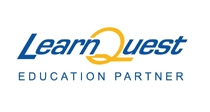Maintenance Planning and Asset Management
Process Plant Inspection
Why Attend
Facing competitive industry and strong global competition, it is critical that organizations gain the most from their equipment and plant, while protecting their life expectancies and reliability for return on investment. Plant operators can be stretched when challenged with unforeseen problems or when time-investment is required for long-term planning. The key is to identify the most cost-effective practical solutions using state-of-the-art assessment tools and techniques, while using Risk-Based Inspection (RBI) methodologies to protect workers and the environment.
This practical but detailed course provides participants with an essential understanding of the engineering and management principles of plant inspection.
Course Methodology
The material used in the training course will be based on exercises as well as regional and international case studies. In addition to group discussions, participants will frequently work in pairs with one another as well as in larger teams.
Course Objectives
By the end of the course, participants will be able to:- Apply the main principals of engineering inspection methods and conduct an effective plant inspection
- Explain what pressure equipment is and the inspection methods
- Identify standards and the governing legislation
- Implement safety and risk-based inspections
- Plan and run an effective inspection program
Target Audience
Participants wishing to gain an overview and understanding of plant inspection needs, techniques and requirements. Those working in operations, maintenance, commissioning and risk management, from planners and technicians through to engineers, contractors, supervisors and managers, will benefit from this course. This course is also suitable for those working in other industries/functions and wishing to transfer into plant inspection and seek a greater understanding.
Target Competencies
- Engineering Inspection Methods
- Pressure Equipment Inspection Methods
- Safety Standards and Legislation
- Safety Inspections
- Risk-Based Inspections

Course Outline
- Introduction to pressure equipment and associated facilities
- Introduction to pressure equipment
- Inspection of pressure vessels
- Inspection of pipelines
- Inspection of storage tanks
- Inspection of paint systems and linings
- Planning and reporting on inspections
- Inspection reporting
- Record keeping
- Use of codes and standards, legislation, rules and regulations
- Roles and duties of the plant inspector
- QA/Inspection
- Inspection and test plans
- Inspection skills and safety understanding
- Inspection safety
- Basic inspection skills, visual inspection skills
- Inspection of materials
- Visual examination of welds
- Inspection and Non-destructive Testing (NDT)
- Inspection engineering, mechanisms, prevention and control
- Pressure vessels
- Engineering materials
- Material properties
- Material degradation
- Key damage mechanisms in major oil and gas production
- Refining and manufacturing processes and where they can be found
- Corrosion processes
- General metal loss
- Localised metal loss, pitting, laminations, weld misalignment and shell distortion
- Flaws and creep
- Fire damage
- Hydrogen blisters
- Hydrogen damage associated with Hydrogen Induced Cracking (HIC) and Stress Orientated Hydrogen Induced Cracking (SOHIC)
- Dents and gouges
- Process parameters
- Prevention and control and the most appropriate inspection and non-destructive testing methods for damage mechanisms
- Introduction to risk-based inspection
- API/ASME related codes and standards
- Fitness for service
- Pressure vessels
- Risk Based Inspections (RBI)
- Reasons for implementing RBI
- Benefits of using RBI
- Practical implementation of RBI
- Planning successful RBI implementation projects
- Preparing inspection plans and optimising maintenance and inspection intervals
REQUEST CALL BACK
Would you like to speak to one of our consulting advisers over the phone? Just submit your details and we’ll be in touch shortly.














